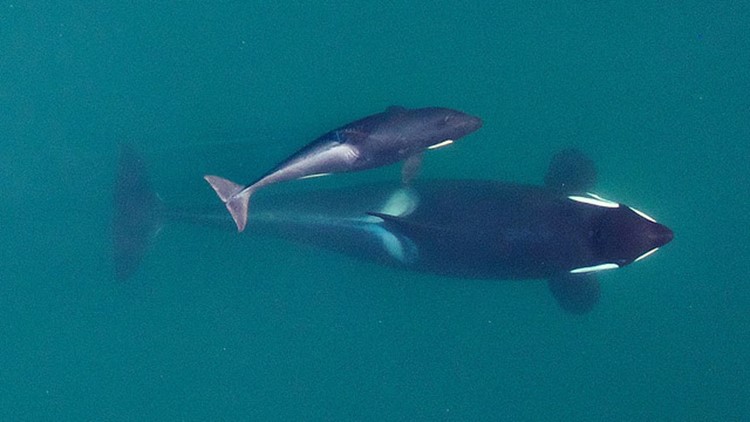After an intervention to save a dying killer whale calf, one veterinarian is compiling electronic medical records for all of her family members.
J50 was declared dead after a month of efforts by scientists to administer antibiotics and even try to feed her. The young whale looked severely emaciated, but no one was sure exactly why.
In the aftermath, one of the team members is compiling a database for the whales that survive her.
"It's definitely permeated everything we've been doing," said SeaDoc Society veterinarian and scientist Dr. Joe Gaydos said. "Our goal is to have a free-ranging healthy population but when populations get very small, even the health of one or two or three animals, especially young females that will go on to have kids themselves, can be really important and valuable to growing that population."
Dr. Gaydos describes long days on the phone, searching for information about J50 from all kinds of people. The time-consuming information sharing has propelled him to make any future efforts more efficient.
"It's also opened up the door for us to be able to understand patterns," Gaydos said. "We could take somebody's data on contaminants, say NOAA's data, and we could take somebody's else's data on pregnancy rates, say Sam Wasser's data, and we could look at those two combined and say, 'It's so clear right now!' But when those databases live on different computers in different people's offices, it's really hard to pull that stuff together."
Gaydos expects the database will be used both for policy and individual responses to sick whales. Having a history for each whale allows experts to differentiate an acute injury from a chronic disease.
"That gives us some different ideas about diagnosis. Maybe it's a congenital problem. Maybe it's not that this animal swallowed a plastic bag or something like that," Gaydos said.
Still, Gaydos describes treating J50 like a pilot flying an airplane with a blindfold. He believes at some point in the near future, scientific analysis will be able to diagnose with a breath sample what's currently only possible with blood samples.
"We need some better diagnostics. We were trying some treatments without really having an understanding of what was going on," he said.
The intervention to save J50 grew more controversial with each passing day, as efforts to administer antibiotics turned to talk of a live capture. For Gaydos, J50 sets a precedent for future action to medicate individual whales, coupled with efforts at long-term recovery.
"You always feel bad when you lose a patient," Gaydos said. "You also can't beat yourself up. You have to realize that under the circumstances, you did the best you could."



